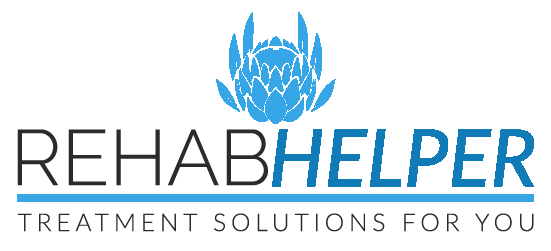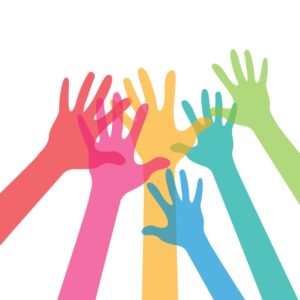Addiction goes beyond the scope of substance abuse, and most recently, studies have shown that certain behaviours and activities can become addictive as well.
Besides the already well documented and warned about addiction to gambling, there is a broad spectrum of addictions and dependencies that fall under what is known as behavioural addictions (or otherwise known as process addictions). And while they may not involve an actual substance, process addiction can be just as or more damaging to your financial wellbeing, relationships and even your health.
What is Behavioural addiction?
Behavioural addiction is the compulsion for someone to take part in specific behaviours to achieve a rush or ‘high.’ This behaviour is repeated numerous times on a consistent basis, regardless of the negative consequences to themselves and others.
With this in mind, it’s possible for almost any activity to be considered addictive, but there are behaviours that are most frequently documented as process addictions. Here are some of the most commonly reported types:
Gaming addiction
PC and video games are fun, but when we forsake all else to play them, it’s considered addictive. If a student’s grades drop and assignments don’t get done in the pursuit of winning online matches, they may need professional help. Especially if they tend to react aggressively to having their gaming time reduced.
Love and Sex addiction
Sex addiction is clearly defined as an addiction to sexual activity, often to the detriment of relationships, obligations, and health. Sex addicts frequently pursue affairs, and while love addiction is harder to define, love addicts also tend to jeopardize their relationships in the pursuit of falling in love with someone new. This can be classed as an addiction to the ‘high’ of fresh love and the honeymoon phase of a new relationship.
Gambling addiction
One of the most well-known process addictions, gamblers will chase the very short-lived high of gambling. The risk involved and the money at stake is often what produces the high, and gamblers will keep gambling to recover from the pain of losing. Gambling addiction is considered one of the most destructive forms of process addiction, taking root quickly and ruining financial stability.
Food addiction and eating disorders
Not all eating disorders can be classified as addictions, but typically food addiction involves compulsive eating and ‘binging’ on food. They seek out the pleasure of eating sugary, fatty foods, and when they come down from this high they’ll resort to eating again to achieve the same high. It can often be linked to obesity and other health conditions relating to weight gain.
Exercise addiction
It can be hard to believe that something good for you can be considered addictive, especially since exercise is necessary to stay healthy. But there can be too much of a good thing, and exercise addiction can be serious enough to result in body dysmorphia and even injury. Athletes can push themselves too hard or resort to abusing substances when not exercising.
Shopping addiction
People can joke about retail therapy, and it does feel good to buy something. But when shoppers spend compulsively, and at the detriment to their financial stability or relationships, they will often find themselves chasing the short-lived high they get from a new purchase. This habit can also be linked to hoarding, another addictive behaviour.
Internet addiction
Internet addiction is a very recent phenomenon; when one sacrifices time spent socialising, working, or taking care of responsibilities to spend time online, that can be considered an addiction.
Porn addiction
With the ease that which porn is now accessible, people are becoming increasingly addicted to pornography. While viewing porn is not necessarily problematic, excessive consumption can lead to problems with self-esteem, relationships, feelings around sexual intercourse, and more.
Risk addiction
Some people chase the thrill of putting themselves at risk of bodily harm, or even death. The adrenaline and intensity of the moment are hard to replicate in everyday life, and thrill-seekers will find everyday life increasingly mundane. This encourages them to take greater risks more frequently and can result in injury and death for themselves and others.
Symptoms of Behavioural addiction
Much like in the case of substance abuse, sufferers dealing with the behavioural addiction will put the high they experience from partaking in these behaviours at the expense of everything else, from their health to relationships and everything in between.
The differences in each type of process addiction mean that symptoms will often vary. The weight gain a gaming addict may experience from long periods sitting in front of a console won’t match up to the injuries and bodily harm sustained in risk chasing. Each individual should be assessed by a case by case basis to determine if there is a process addiction at play.
What is the role of dopamine in addiction?
When we participate in addictive behaviours, we experience a rush of dopamine that comes with a reward response. This produces the high we feel, and beyond drugs and alcohol, we can experience this rush of dopamine from any activity that brings us joy or euphoria.
It’s important to understand that it’s not dopamine itself that is addictive, but it’s a motivator that encourages us to pursue these addictive behaviours.
The brain releases dopamine when we participate in behaviours that bring us pleasure, excitement and joy so as to attach a positive connotation to that behaviour. We start to associate that activity with a high, and all other activities become less enthralling, less enticing than this activity that made us feel good in the process.
That’s also not to say dopamine is bad. We experience joy and rush of dopamine when we eat, when we create art, have sex or participate in our favourite hobbies. Dopamine is simply a chemical that links the joy to the activity in our memories. This encourages us to keep pursuing that activity and that joy again.
It’s only once we abuse these activities, especially the usually harmless ones, that we can start to consider these behaviours detrimental and addictive.
Treatment
The treatment around process addictions is much the same as we’d give sufferers dealing with substance addictions. Away from addictive behaviours, the journey towards recovery can be taken with the dedicated support of addiction specialists and peers in a controlled environment. Through tailored recovery journeys and some of the most renowned rehabs in the UK, it’s possible to free yourself from the influences of addiction.


